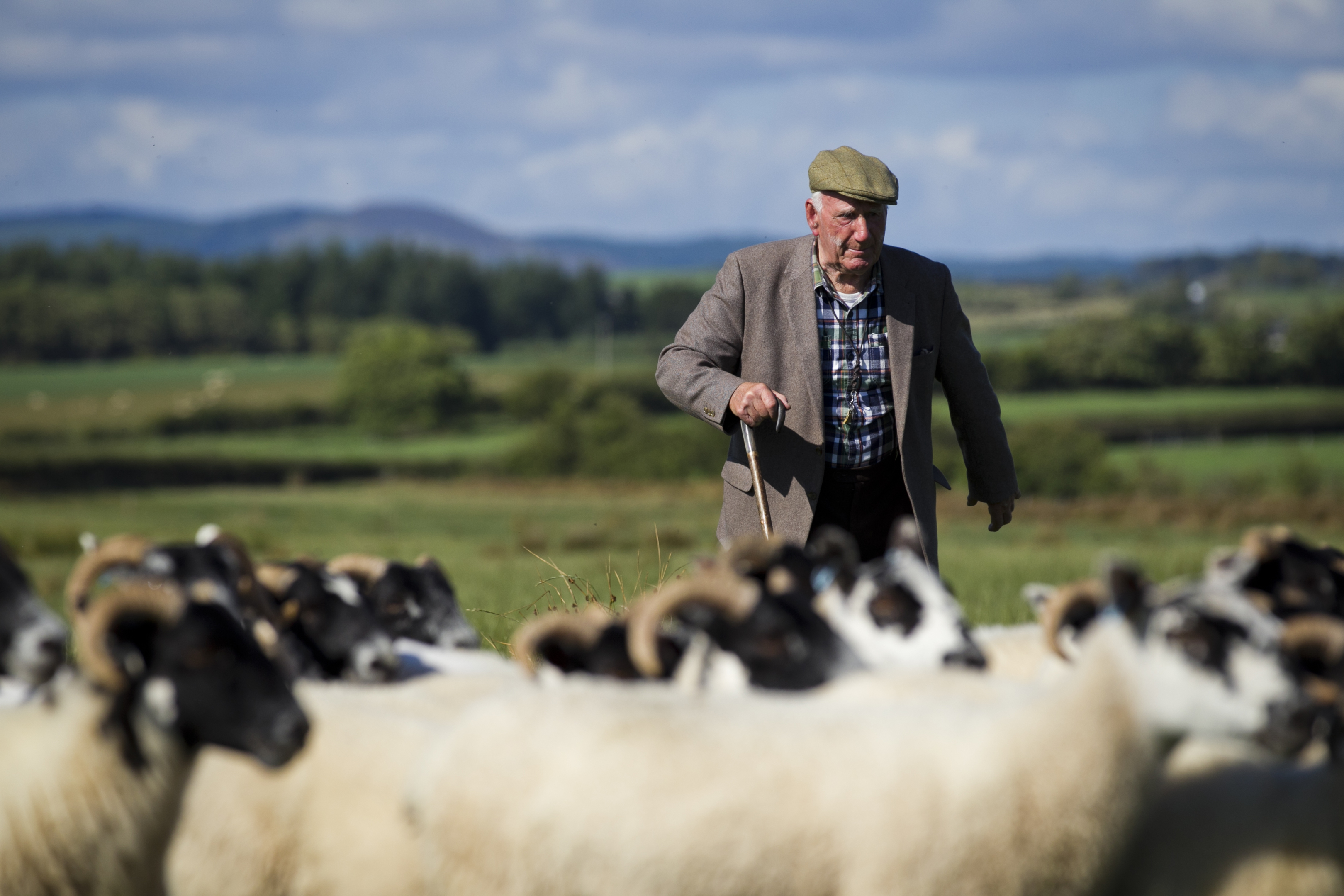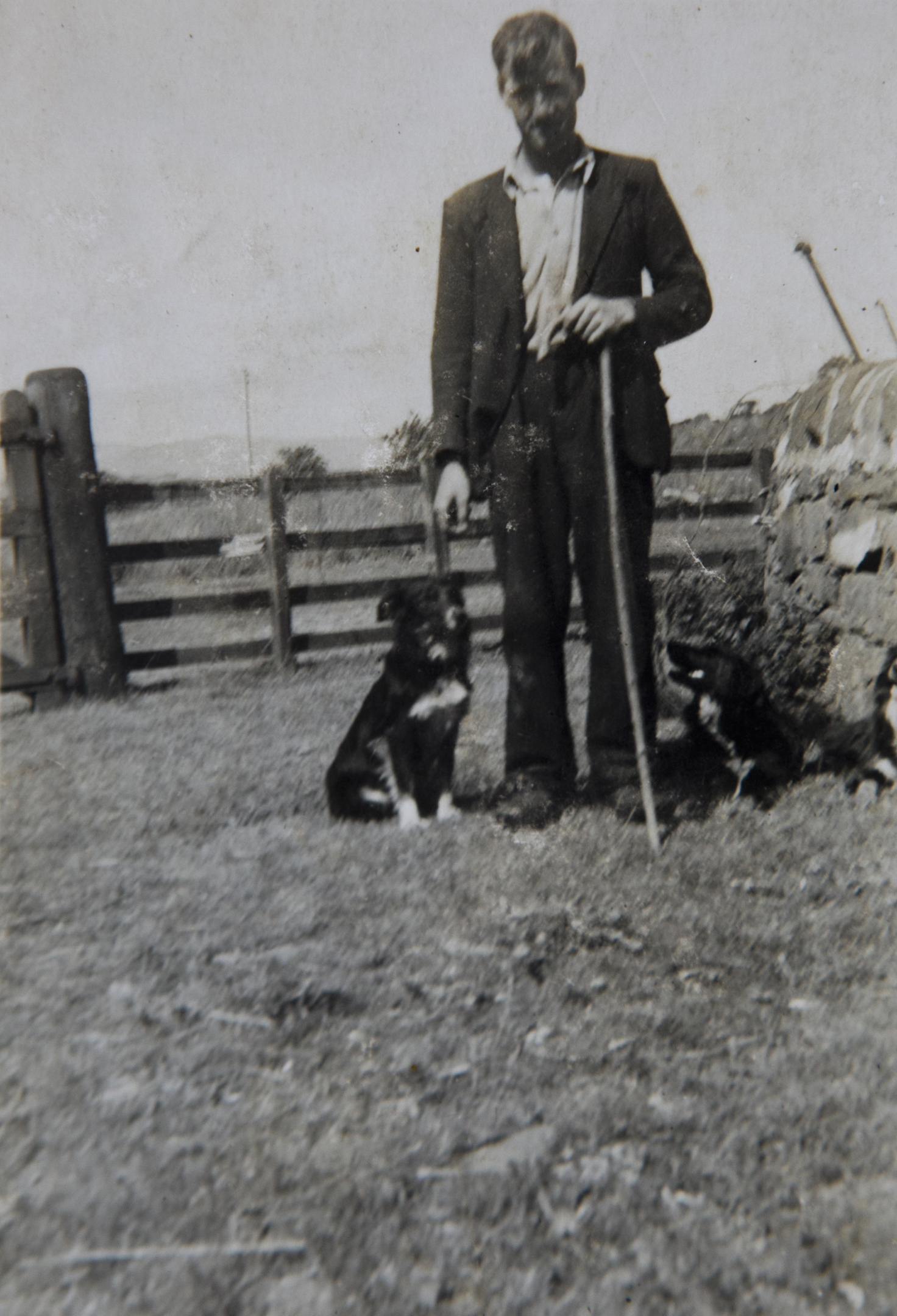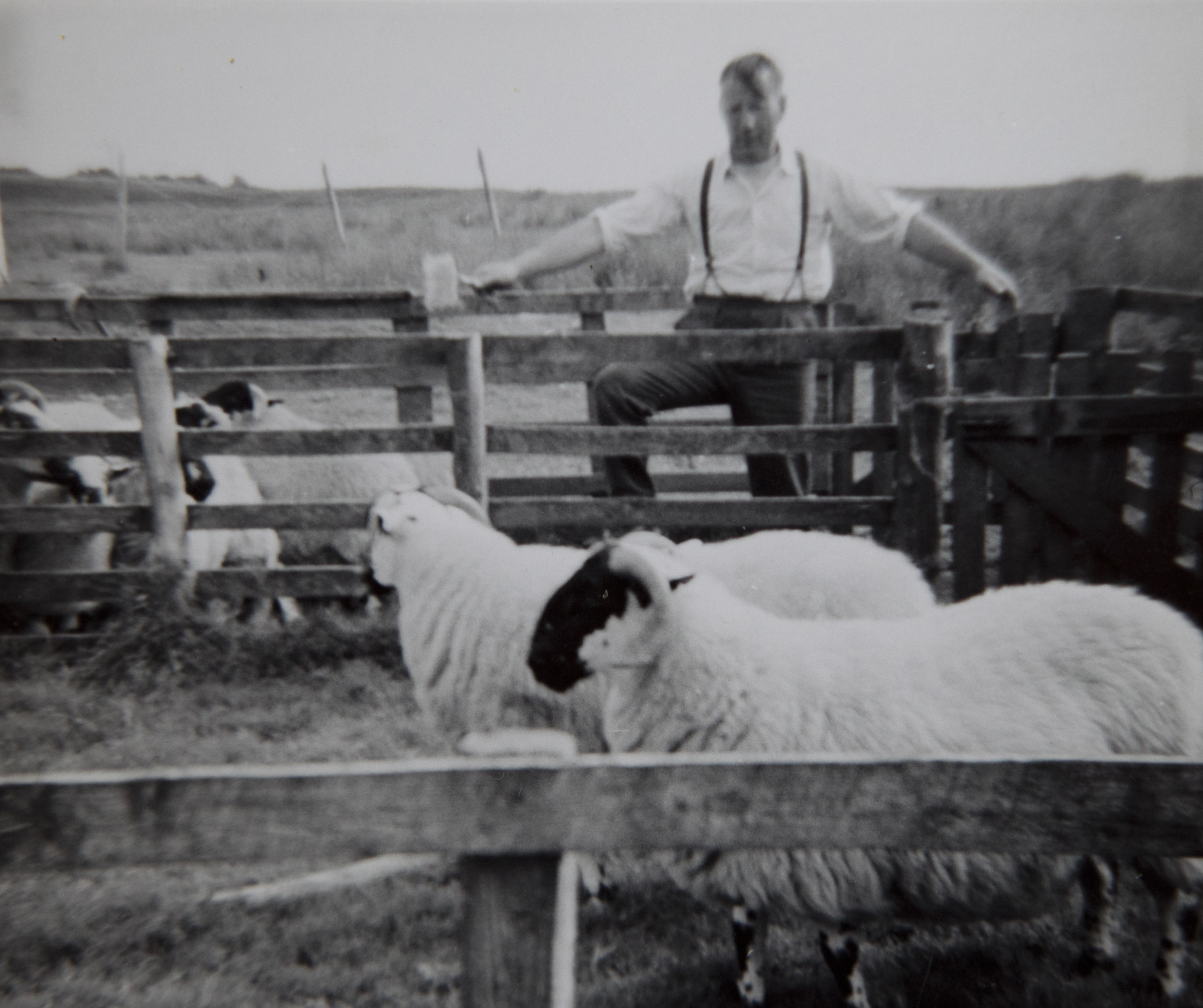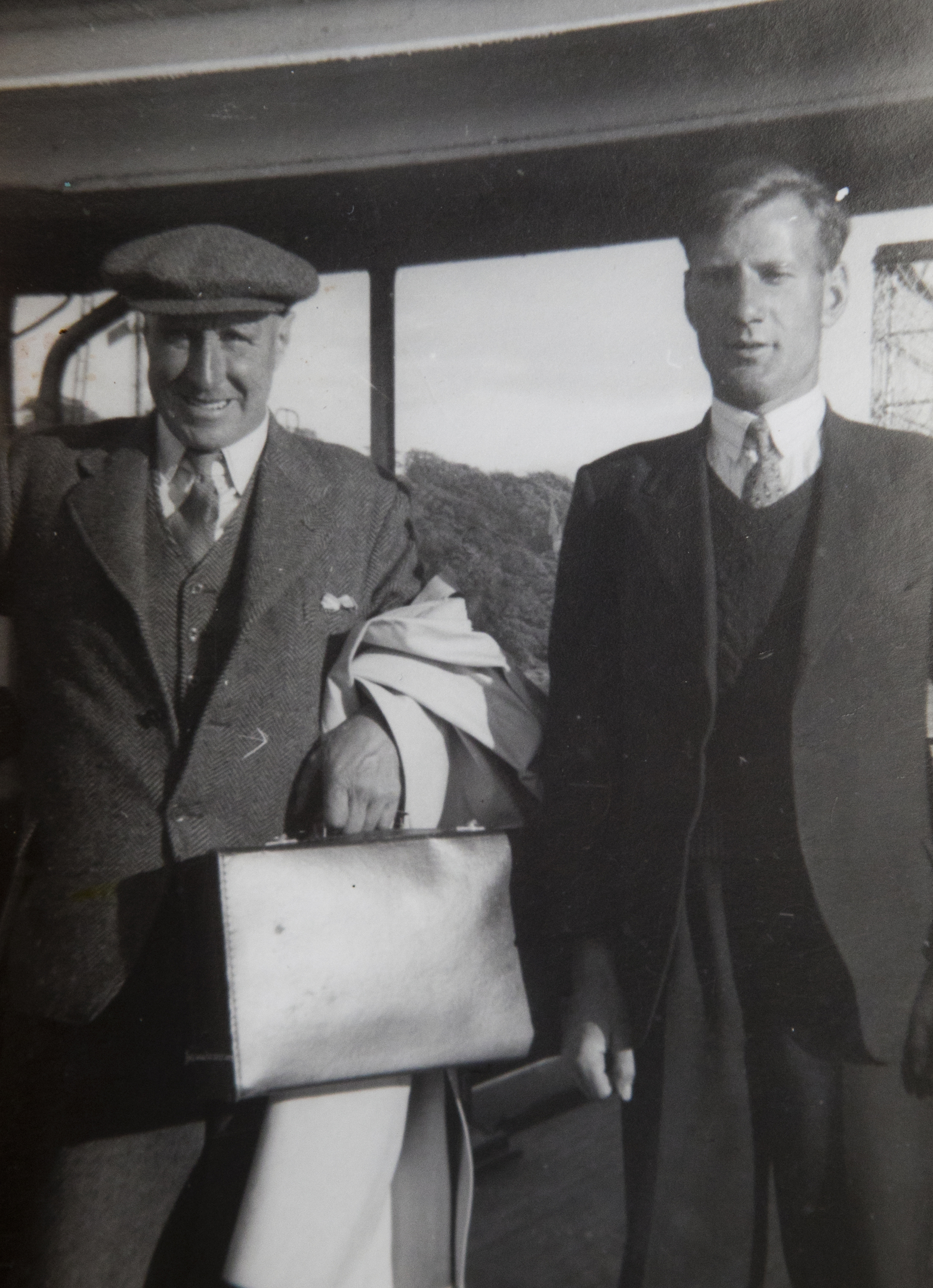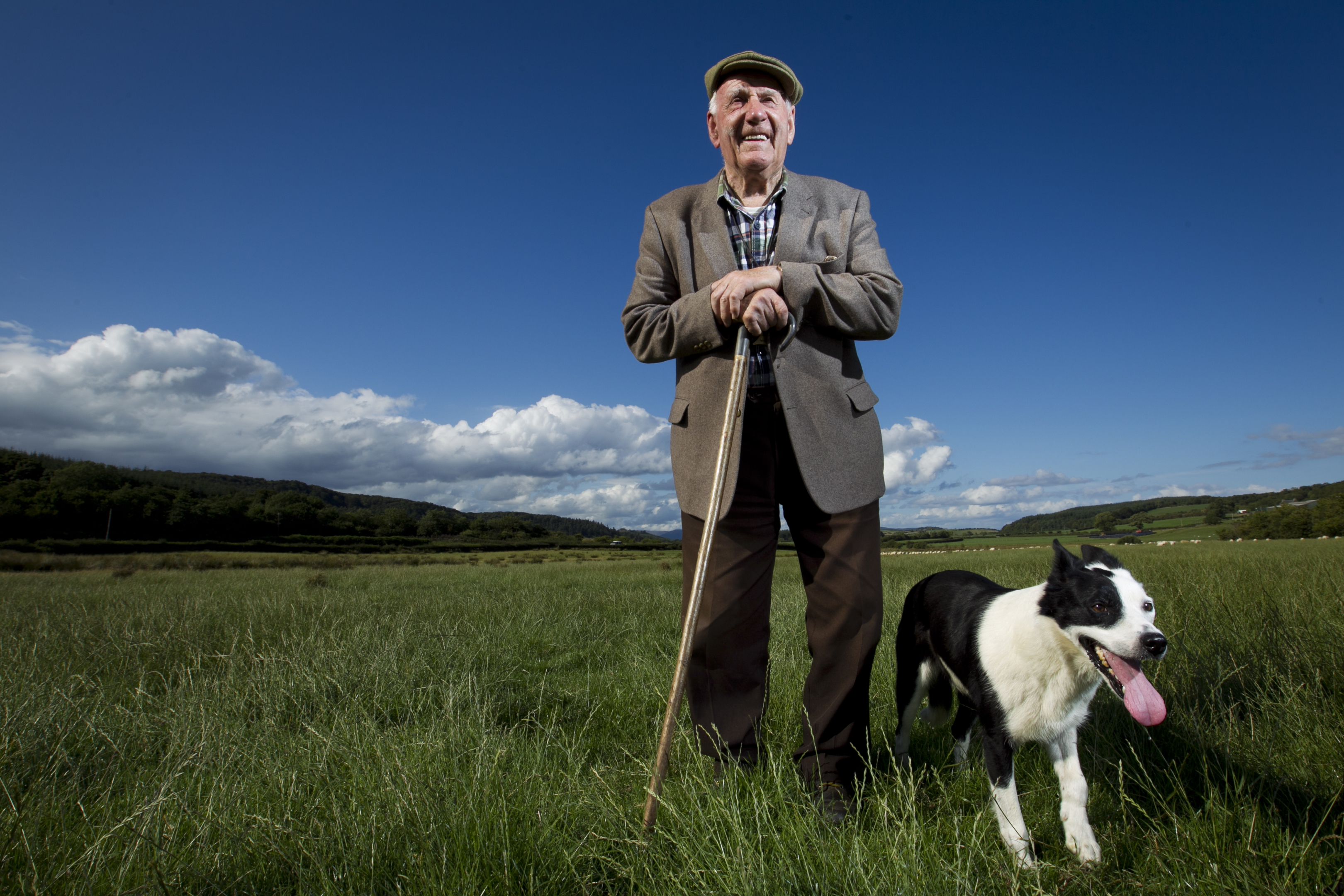
IT is early morning on the island and Sandy McKirdy is already out with his sheep.
The 10 ewes and 22 lambs work their way slowly along the shore as Sandy and his two dogs, Jean and Bess, watch on.
It is breakfast time on Tuesday but could be just about any day since 1940 when Sandy started working as a shepherd on Bute when just 16.
A tall man, Sandy’s progress beside his flock betrays few of his 94 years. Only a slight limp, the legacy of a tricky hip replacement, has slowed his stride.
He has spent almost his entire working life on Bute, and his daily routine has changed little.
He rises at dawn, breakfasts on porridge, boiled eggs and a cup of tea, then, clad in a tweed jacket and cap and carrying his shepherd’s crook, he is off to work, staying with his black faced sheep all day, packing a lunch of mutton, oakcakes and a flask of tea.
It is a routine largely unaffected by modern machines or technology. Unlike many farmers, he does not use a quad bike to get around. Nor does he own a mobile phone.
Looking out to the landscape where he has spent his life, Sandy, a dad of four and now a great-granddad, says: “I suppose I would like to die on the hills. I don’t look forward to the day when I have to give up.”
Back at their whitewashed cottage, overlooking the Sound of Bute and the hills of Ayrshire beyond, his wife Eileen, 74, looks out for him returning around 5pm every evening.
“If he’s late he’s probably at one of the local farms chatting and catching up on the news,” she said.
“People watch out for him, others have set their watches by him.
“Once, a friend drove up to see why he was late passing by that day.
“It’s good to know that people keep an eye out for him.”
The couple have been married for 44 years.
Retired bank worker Eileen smiles and says: “We met at a hotel function many years ago and been together since. It’s been a happy marriage. I am his toy girl, 20 years younger.”
Sandy is among the last of his kind. Over the years, traditional shepherds have disappeared as sheep no longer wander the hills, but are kept in enclosed fields,
He says: “In the past, shepherds would cover miles every day walking hillsides.
“Instead, more sheep are kept in fields these days and the quad bikes round up those still left to wander. Machines have also cut out a lot of the hard work.
“Life has changed, but not always for the better.
“Shepherds are a dying breed and there are few of us left. It doesn’t pay for farmers to keep a shepherd as the price of sheep fluctuates so overheads have to be kept down.”
Sandy’s living room boasts a clutch of trophies from sheep dog trials and national competitions where he still competes. He celebrated his 94th birthday earlier this month by taking first prize in the pen class at trials on Bute.
The competition judges shepherds on their skill of herding four sheep into an eight foot square pen.
He completed the course with his top collie, Jean.
It’s a great result considering that a radiographer told him that after his first hip replacement, when he was 72, that he would never walk the hills again.
“I did well after that operation and was happily back on the hill.
“I needed a second hip operation but put it off till 89.
“The surgeon deemed me fit enough for major surgery but delaying it too long meant a poorer result for me.
“My left leg is a bit unstable but I manage with a stick.”
Resting on the wall are his shepherd’s crooks, shaped to fit snugly into his palm and wide enough to catch a sheep at the neck and pull it to safety.
On the coffee table are copies of farming magazines which Sandy combs through, scanning livestock prices and show winners.
Sandy’s mind is sharp and his sight, after a cataract operation, is good.
“I can’t remember a day when I wasn’t out with the dogs, except when I was in hospital getting my hips done. My heart and blood pressure are fine and I guess it’s all the walking that’s kept me in good health.”
He knows every step of the Bute hills, their burns and peaks, throughout the seasons.
“It’s changed over the years and there are trees on the north end.
“It’s a common story in Scotland where trees have been planted on hillsides, previously used by the sheep.
“It’s more profitable to plant trees and part of the changing landscape.”
His dogs only have eyes for him and shadow his every move.
They move on cue to every command from the shepherd’s whistle, worn in a pendant around his neck.
Jean is even able to open the back door of their home with her paws.
“Fortunately, she hasn’t learned how to shut it and lock us out, though,” Eileen said.
Like all sheepdogs, Jean and Bess live outside, in the back hut.
When they are allowed to wander into the house Jean will sit glued to Sandy’s fireside chair. Eileen doesn’t get a look-in.
“But if there are sheep she will fix her gaze on them and I take second place,” Sandy says.
“It’s in their breeding, their nature. That’s one of the reasons I have always had collies.”
The living room window gives them a superb view of cruise liners which sail down the Clyde estuary and into Greenock – but its not the kind of thing Sandy and Eileen have ever been tempted by.
“Sandy travels to the mainland for sheepdog trials and shows and I play bowls on Bute or on the mainland,” Eileen says.
As he and Eileen wave us off at their front door, Sandy looks at this watch, eager to take Jean and Bess out.
His parting words are that he is not made to look anything special.
“I’m just lucky to be doing a job that I love.
“I have known shepherds live till well over 100 and that’s my aim, if I am blessed enough to see that.”

Enjoy the convenience of having The Sunday Post delivered as a digital ePaper straight to your smartphone, tablet or computer.
Subscribe for only £5.49 a month and enjoy all the benefits of the printed paper as a digital replica.
Subscribe